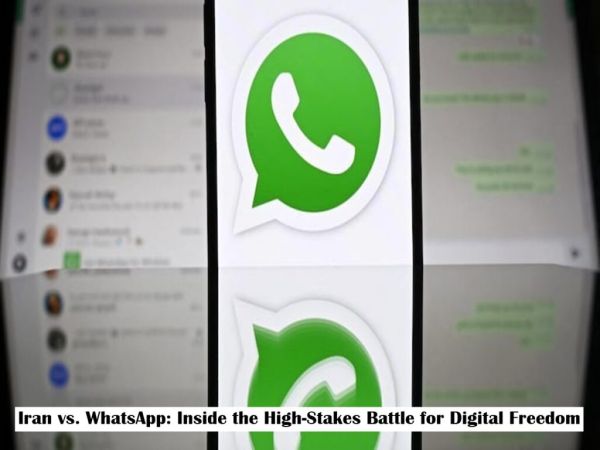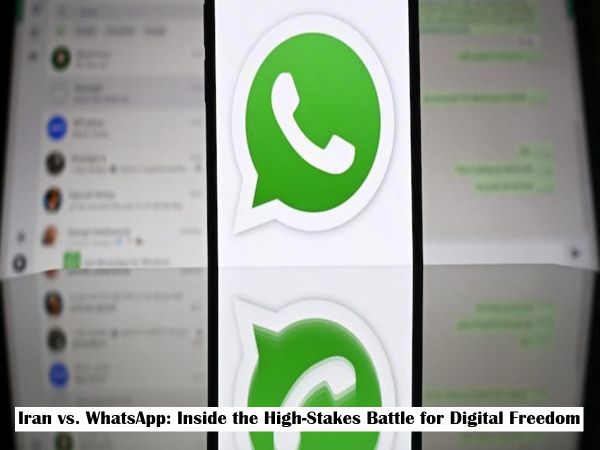

Suspense crime, Digital Desk : The Iranian government is waging a new war on the digital front, urging its citizens to delete WhatsApp in a move that highlights a deep-seated battle between state control and personal freedom. This campaign is not just about promoting local apps; it’s a strategic effort by the regime to sever a crucial link to the outside world and tighten its grip on information.
At the heart of the government’s push are its homegrown messaging apps, “Rubika” and “Eitaa.” Officials from Iran’s Supreme Council of Cyberspace are actively promoting these alternatives, framing the move as a matter of national security and a way to support the domestic economy.
However, the timing and context reveal a different motive. This intensified campaign follows the massive anti-government protests that swept the nation in 2022 after the death of Mahsa Amini. During that time, apps like WhatsApp and Instagram were instrumental for protesters to organize, share information, and broadcast events to the world, bypassing strict state censorship. In response, the regime blocked them, and this new push to delete the apps entirely is the next logical step in its strategy to prevent a recurrence.
Why Iranians are Resisting
For the vast majority of Iranian citizens, the government’s plea is falling on deaf ears. There is widespread distrust of state-controlled applications, with deep-seated fears of surveillance, censorship, and data monitoring. For many, WhatsApp isn’t just a messaging app; it’s a secure and private lifeline. It represents:
A Secure Channel: With its end-to-end encryption, WhatsApp offers a level of privacy that domestic apps simply cannot guarantee.
A Window to the World: It allows citizens to communicate freely with family, friends, and news sources outside of Iran’s “digital wall.”
A Tool of Defiance: Continuing to use WhatsApp, often through Virtual Private Networks (VPNs) that bypass government blocks, has become an act of quiet resistance against the regime’s control.
How WhatsApp is Fighting Back
Meta, WhatsApp’s parent company, has not stood by silently. Recognizing its role as a vital communication tool in repressive environments, the company has actively taken steps to help its Iranian users.
In a direct challenge to the government’s blockade, WhatsApp has rolled out proxy support. This feature allows users to connect to the service through servers set up by volunteers and organizations around the world, effectively creating detours around government censorship. This technical solution is a clear statement that WhatsApp is committed to keeping its platform accessible and private for everyone, regardless of where they live.
The ongoing struggle in Iran is more than a dispute over an app. It’s a microcosm of a global conflict between the push for a closed, state-controlled “national internet” and the fundamental human right to free and private communication.
Read More: Iran vs. WhatsApp: Inside the High-Stakes Battle for Digital Freedom
-
Kensington Palace issue statement as Princess Kate pulls out of Royal Ascot at last minute

-
Kate Middleton cancer update as Princess pulls out of Royal Ascot appearance

-
We Pray for Peace — But Worship Power

-
Gorakhpur Link Expressway to open on June 20: UP CM Yogi to do the inauguration

-
Who Am I and How to Find My Purpose? The Gita Breaks the Illusion You're Living In
